The last words spoken by legendary Americans offer a fascinating glimpse into their lives and legacies. From the stirring patriotism of Nathan Hale’s sacrifice to the cryptic utterance of J. Robert Oppenheimer, these poignant phrases encapsulate the bravery, wit, and introspection of influential figures throughout American history. Whether delivered on the battlefield, in moments of political turmoil, or with a touch of humor, these 11 famous last words resonate as enduring reminders of the indelible impact these individuals have left on the nation’s narrative.
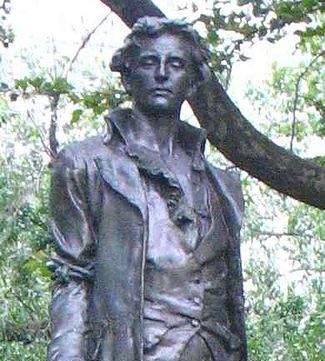
“I only regret that I have but one life to lose for my country.”
Nathan Hale (American Revolutionary War spy
“I only regret that I have but one life to lose for my country.” These immortal words, spoken by Nathan Hale, epitomize the selfless dedication and unwavering patriotism of an American Revolutionary War spy. Facing the gallows with steadfast resolve, Hale expressed his profound regret at having only one life to sacrifice for the cause of freedom. His poignant statement captures the essence of a true hero, willing to give everything for the ideals and values he held dear. Hale’s sacrifice and unwavering commitment to his country continue to inspire generations, reminding us of the profound sacrifices made by those who fought for the birth of a nation. His words serve as a powerful reminder of the transformative power of conviction and the enduring spirit of those who dare to challenge injustice in pursuit of the greater good.
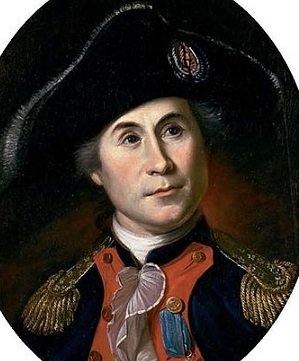
“I have not yet begun to fight!”
John Paul Jones (American naval hero)
“I have not yet begun to fight!” These resolute words, declared by John Paul Jones, epitomize the indomitable spirit and determination of an American naval hero. In the heat of battle during the Revolutionary War, when asked if he was ready to surrender, Jones defiantly proclaimed his unwavering resolve to continue the fight. His words encapsulate the essence of bravery and unwavering commitment to victory in the face of overwhelming odds. Jones’s unwavering determination and strategic brilliance made him a legendary figure in American naval history. His quote has become a timeless rallying cry, symbolizing the resilience and fighting spirit of the American spirit. Through his words, Jones inspires us to persevere in the face of adversity and never back down from a worthy challenge. His legacy serves as a reminder of the extraordinary achievements that can be attained when courage meets unwavering determination.

“Thomas Jefferson still survives.”
John Adams (2nd President of the United States)
In an era marked by the passage of time, John Adams, the second President of the United States, declared with unwavering certainty, “Thomas Jefferson still survives.” These words encapsulate the enduring essence of Thomas Jefferson, his ideas, and his profound influence on the American nation. Despite his physical absence, Jefferson’s spirit persists through the annals of history, woven into the very fabric of the United States. His role in the drafting of the Declaration of Independence, his advocacy for individual liberty and democratic principles, and his unwavering pursuit of knowledge and progress continue to shape the nation to this day. Jefferson’s intellectual prowess, political acumen, and dedication to the ideals of freedom and equality serve as a timeless reminder of the transformative power of human thought and the indomitable spirit of the American people.

“My God, what have I done?”
J. Robert Oppenheimer (physicist, “father of the atomic bomb”)
“My God, what have I done?” These haunting words were uttered by J. Robert Oppenheimer, the brilliant physicist often referred to as the “father of the atomic bomb.” As Oppenheimer witnessed the destructive power unleashed upon Hiroshima and Nagasaki during World War II, remorse and a profound sense of responsibility overwhelmed him. At that moment, he recognized the irreversible consequences of his scientific achievements. Oppenheimer’s quote reflects the moral dilemma faced by those who contribute to the advancement of technology without fully comprehending its potential ramifications. It serves as a poignant reminder of the ethical challenges scientists and innovators encounter when their creations lead to devastating outcomes. Oppenheimer’s regret became a catalyst for his subsequent advocacy for nuclear disarmament, emphasizing the need for responsible use of scientific knowledge to safeguard humanity from the destructive forces it can unleash.
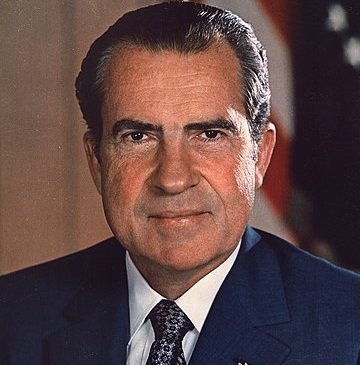
“I am not a crook.”
Richard Nixon (37th President of the United States)
“I am not a crook.” These defiant words were proclaimed by Richard Nixon, the 37th President of the United States, during a press conference in 1973. The statement came amidst mounting allegations of corruption and involvement in the Watergate scandal that ultimately led to his resignation. While Nixon’s assertion aimed to maintain his innocence, history has since shown otherwise. The phrase has become an infamous symbol of political deceit and a reminder of the erosion of public trust. Nixon’s presidency serves as a cautionary tale of the abuse of power and the importance of transparency and accountability in government. The quote remains a lasting reminder of the consequences that await leaders who deviate from ethical conduct and the enduring impact of their words on the public’s perception.
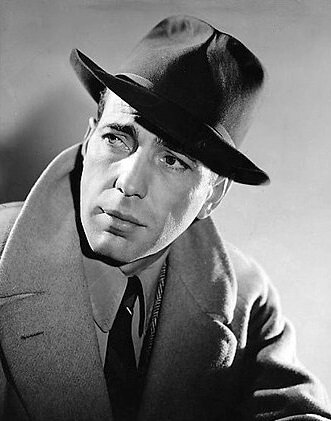
“I should never have switched from Scotch to martinis.”
Humphrey Bogart (American actor)
“I should never have switched from Scotch to martinis.” This self-reflective remark was made by Humphrey Bogart, the iconic American actor known for his timeless roles in classic films. Bogart’s statement captures a moment of personal regret, perhaps in jest, about a choice he made regarding his preferred alcoholic beverage. While seemingly lighthearted, the quote carries a deeper meaning. It serves as a reminder that even small decisions can have unexpected consequences and that it’s human nature to occasionally question our choices. Bogart’s words also highlight the importance of embracing and accepting the paths we have taken, acknowledging that hindsight can sometimes bring a sense of longing or second-guessing. Despite the humorous tone, the quote invites introspection and reminds us that life is a series of choices, and we must navigate them with a mix of confidence, acceptance, and good humor.
“I did not get my SpaghettiOs. I got spaghetti. I want the press to know this.”
Thomas J. Grasso (convicted murderer, famous for his last meal request)
“I did not get my SpaghettiOs. I got spaghetti. I want the press to know this.” These seemingly trivial words were uttered by Thomas J. Grasso, a convicted murderer known for his last meal request. Grasso’s statement highlights the extraordinary attention and scrutiny that can surround even the smallest details in high-profile cases. While his comment may appear inconsequential, it sheds light on the human desire for recognition and the pursuit of justice, no matter the circumstances. Grasso’s focus on his final meal resonates as a plea for accuracy and transparency as if to say, “I want my story to be told correctly.” In a larger context, it serves as a reminder of the complexities and peculiarities that can emerge in the criminal justice system, illustrating how even mundane aspects can capture public fascination and shape perceptions of an individual’s final moments.
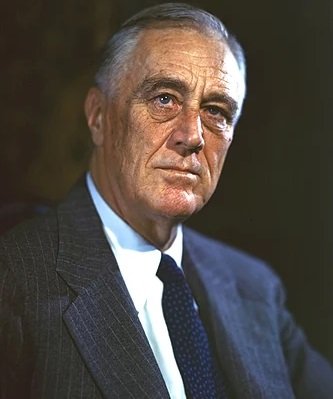
“It is finished.”
Franklin D. Roosevelt (32nd President of the United States)
“It is finished.” These solemn words were uttered by Franklin D. Roosevelt, the 32nd President of the United States, during his inaugural address in 1933. This powerful declaration symbolized the end of an era marked by economic depression and promised a new beginning for the American people. Roosevelt’s statement reflected his acknowledgment of the challenges that lay ahead and his commitment to tackling them head-on. With unwavering determination, he embarked on a transformative presidency that would reshape the nation through his New Deal policies. Roosevelt’s words also carried a deeper significance, echoing the biblical phrase spoken by Jesus on the cross. They served as a rallying cry for hope, resilience, and the belief that through collective effort, a brighter future could be attained. “It is finished” stands as a testament to Roosevelt’s leadership and his unwavering dedication to the welfare of the American people.

“I feel myself going. I bid you all adieu.”
George Washington (1st President of the United States)
“I feel myself going. I bid you all adieu.” These solemn words were spoken by George Washington, the revered figure who served as the first President of the United States. Washington’s statement marked the end of his life, a moment of farewell to the nation he helped shape. It encapsulates his acceptance of mortality and his desire to part with grace and dignity. The quote reflects Washington’s sense of duty and his commitment to the ideals of the young nation. His departure serves as a poignant reminder of the impermanence of life and the transitions that shape history. Washington’s legacy endures as a symbol of leadership, integrity, and devotion to the principles of democracy, inspiring generations of Americans to strive for greatness and uphold the values he championed.

“My father was a preacher, my grandfather was a preacher, my great-grandfather was a preacher, my only brother is a preacher – my son is a preacher. I came from a preacher’s family.”
Martin Luther King Jr. (civil rights leader)
“My father was a preacher, my grandfather was a preacher, my great-grandfather was a preacher, my only brother is a preacher – my son is a preacher. I came from a preacher’s family.” These powerful words were spoken by Martin Luther King Jr., the iconic civil rights leader who dedicated his life to the pursuit of equality and justice. King’s statement highlights the profound influence of his family’s religious legacy, shaping his own path and his commitment to activism. It underscores the deep connection between faith and social change, emphasizing how his upbringing and the values instilled in him fueled his unwavering determination to fight against racial discrimination. King’s words reflect the intergenerational impact of his family’s commitment to spreading love, peace, and righteousness through preaching. His remarkable journey serves as an inspiration, reminding us of the power of conviction and the transformative influence of one’s upbringing and heritage.

“How were the receipts today at Madison Square Garden?”
P.T. Barnum (showman and circus owner)
“How were the receipts today at Madison Square Garden?” This inquiry, attributed to P.T. Barnum, the renowned showman and circus owner, reflects his keen business acumen and entrepreneurial spirit. As a master showman, Barnum was always mindful of the financial success of his ventures. The question about ticket sales at Madison Square Garden, a venue where Barnum often staged grand spectacles and extravagant shows, exemplifies his focus on the bottom line. Barnum’s ability to draw crowds and generate revenue was legendary, and his relentless pursuit of profits contributed to his enduring legacy in the entertainment industry. His quote serves as a reminder of the intricate relationship between entertainment and commerce, showcasing Barnum’s astute understanding of the importance of financial success in his ambitious endeavors.
Conclusion
The famous last words uttered by legendary Americans form a tapestry of poignant and memorable expressions. They serve as poignant reminders of the courage, conviction, and complexity of these influential figures. From political leaders to artists and revolutionaries, their final words continue to captivate and inspire, leaving an indelible mark on American history and culture.
 Skip to content
Skip to content
